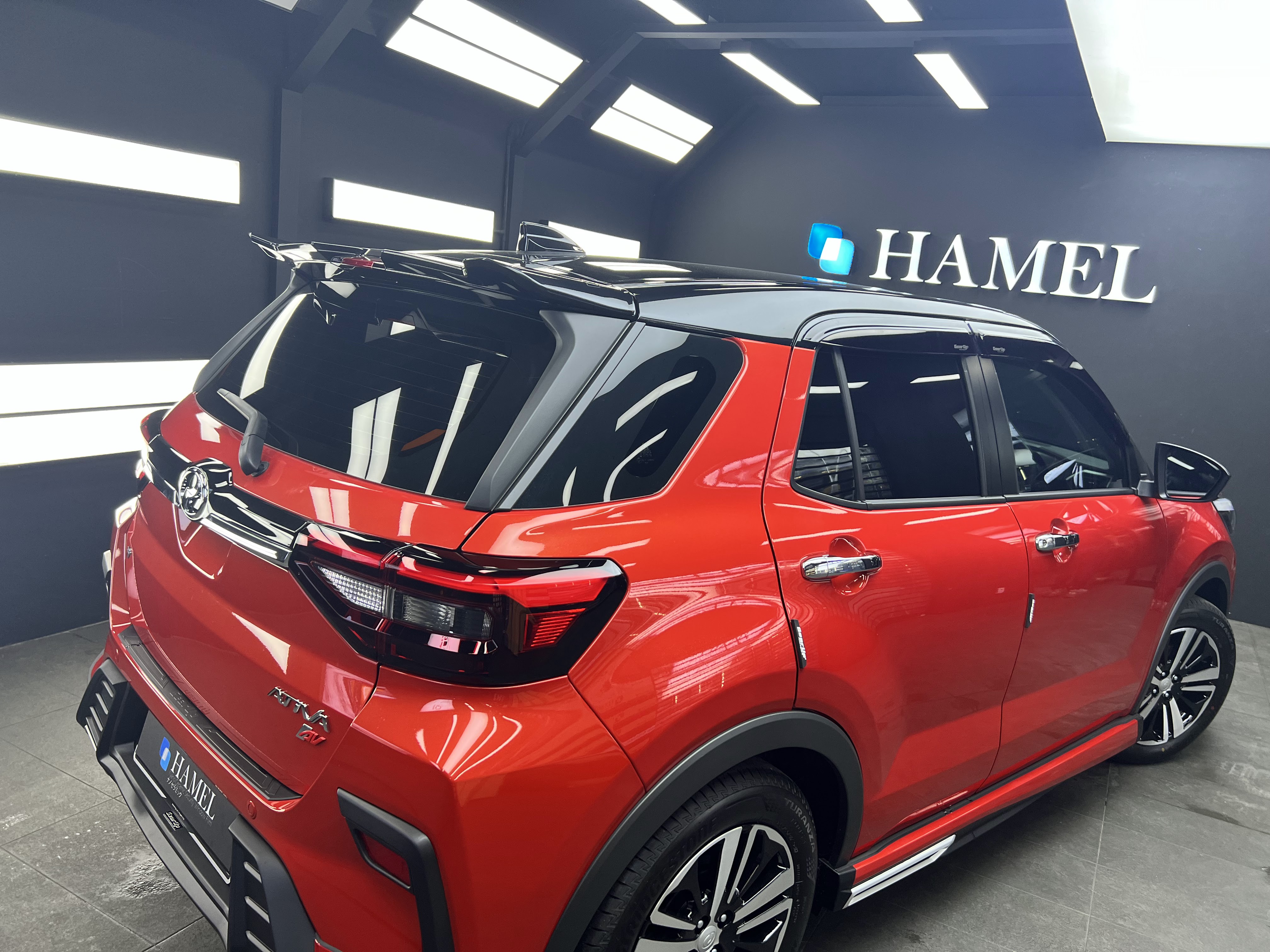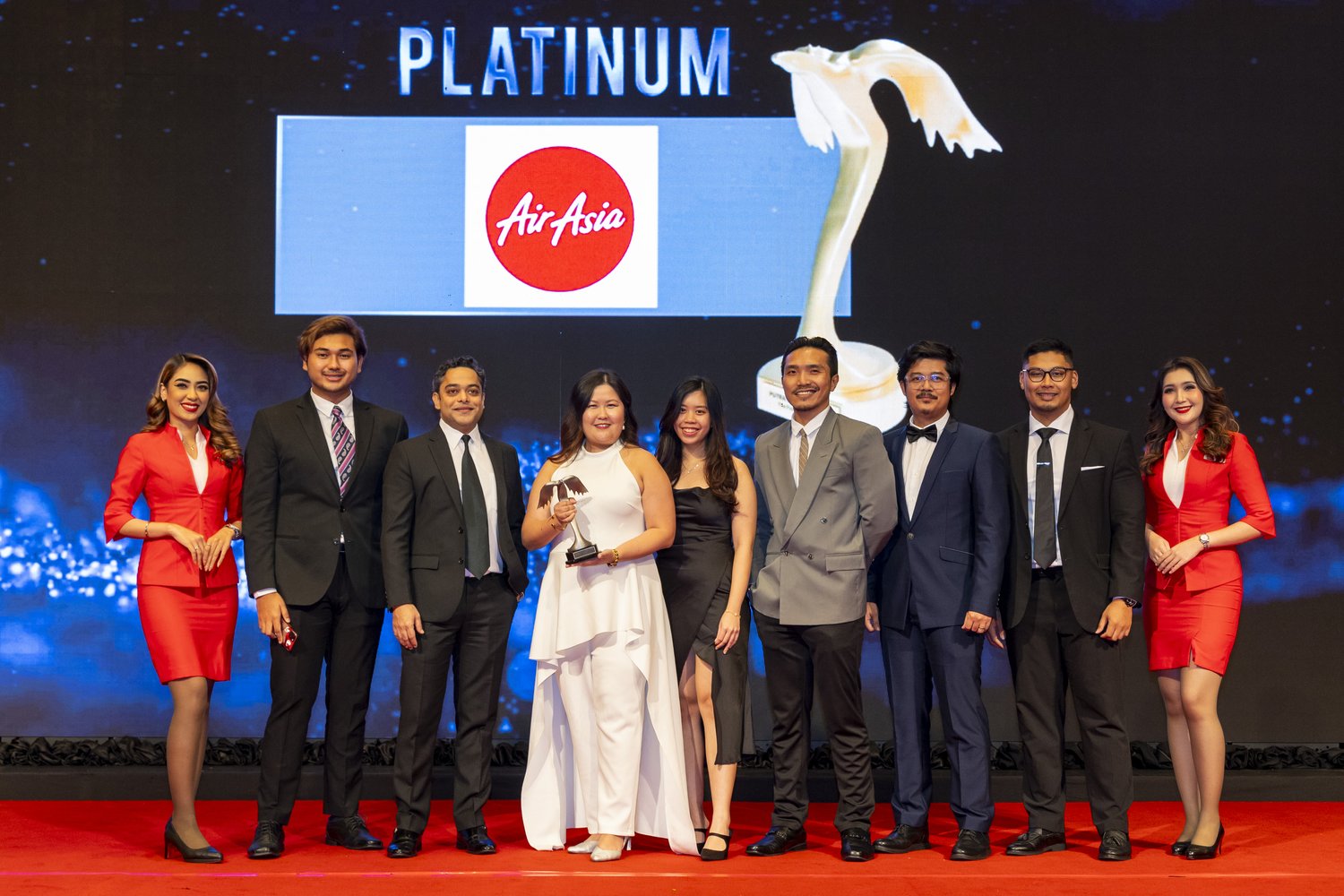Search Blog
Hit enter to search or ESC to close
Trending Now
AirAsia wins Platinum in travel category at Putra Brands Awards
- Get link
- X
- Other Apps
Touch ‘n Go Wins Super Aspiring Brand Award in the Lifestyle Category at the Shopee Super Awards 2023
- Get link
- X
- Other Apps
Commuting regularly is an essential part of almost all Malaysians’ life – be it to and from work, school, or running everyday errands. Such a significant part of our life should not be a burdensome task, yet the average Malaysian in the Klang Valley area spends at least 44 long hours in their private vehicles due to traffic jams[1].
Spending this much time on the road incurs significant negative effects not just on the environment, but on commuters’ financials, productivity at the workplace, mental and emotional health, and even physical wellbeing. The solution to this issue seems simple – encourage more commuters to rely a little bit more on public transportation systems, which is something the government is in the process of carrying out.
According to the National Transport Policy 2019-2030, the government is aiming for the public transportation’s modal share to hit 40% by the year 2030. As of 2019, however, the number sits only at 25%, a far cry from the 2030 target. Moreover, an even smaller number of 17% of commuters rely on public transportation specifically in KL city, Malaysia’s capital and busiest city[2].
Despite the number of hours stuck in traffic, commuters still opt to travel via their private vehicles. While Malaysia’s public transportation systems are in place, they still leave some things to be desired: route adequacy, reliability, and first and last mile solutions
The government is tirelessly searching for and working on solutions for route adequacy and reliability, as seen with the continuous construction of additional light rail transit (LRT) and mass rapid transit (MRT) lines and stations, the implementation of dedicated bicycle lanes, and more. First and last mile issues are being seriously looked at as well, not just by the government but by micromobility service providers as well.
With ramped up efforts to put proper infrastructures for first and last mile transport in place, using micromobility vehicles such as Beam’s shared e-scooters would effectively solve this issue. More often than not, commuters are hesitant to rely on public transportation as they have an issue with completing both the first and final leg of their journey. For example, getting to the train station or getting to the final destination after getting off the train.
Beam Mobility has been placing more of its shared e-scooters in key areas of Klang Valley, allowing commuters to get to their destinations efficiently and comfortably. With more of its e-scooters readily available in key areas of the city, there is an increasing number of commuters who have mentioned that they are willing to depend on public transportation regularly.
According to a survey that Beam carried out with its base of riders, 23% of all respondents answered that they are “more likely to”, “much more likely to”, or “definitely going to” sell or end the lease on their private vehicles as a result of their access to shared e-scooters. This number rises to 30% amongst for those who have access to shared e-scooters within a 5 minutes-walk from where the live and work.
Overall, 52% of respondents answered that they are “more likely” or “much more likely” to consider using public transportation now that they have the option of using shared e-scooters to complete the first and last mile of the journey – an encouraging statistic in line with the government’s vision for the public transportation system. Moreover, the efforts taken by the government and by micromobility service providers have shown that sentiments surrounding shared e-scooters are becoming increasingly positive as well, as roughly 60% of Malaysian citizens feel “positive” or “very positive” about the availability of e-scooters in their cities.
“Ultimately, we want to do what we can to make cities flow better. Our efforts to make our shared e-scooters more available to all by placing them in strategic locations is a step in that direction. The goal that we share with the government, to achieve a public transportation modal share of 40% by 2030, is something we’re working towards and is something that we are confident can be achieved with the support from our partners and the right mindsets from fellow Malaysians,” said Justin Tiew, General Manager of Beam Mobility Malaysia.
“Based on personal experience, I can strongly say that relying on micromobility solutions to get past the first and last mile in everyday public transportation journeys is beneficial for all – for the environment, for myself, and for the country as a whole,” he added.
Beam Malaysia Merdeka Promo
To celebrate the upcoming national festivities and to encourage the use of its shared e-scooters rather than private vehicles, Beam Malaysia is offering a special, limited-time Merdeka Promo with discounts of up to 50% on all rides for all to benefit from.
From 27th August 2022 till 16th September, riders will be able to use a Beam e-scooter from selected public transportation hub spots for just RM0.30 per minute. This translates to a 33% discount for off-peak hours (6am to 6pm on weekdays), and a 50% discount for peak hours (6pm to 6am on weekdays and entire weekends). Moreover, riders who end their Beam e-scooter trips by parking at designated public transportation hub spots will also receive a RM2.00 credit reward.
Regardless of whether it is to get to work or to play, riders can immediately make full use of the promo period by downloading the app via the Apple Store or Google Play Store!
[1] Source: Dr Ismaniza Ismail, Senior Lecturer, School of Chemistry & Environment, Applied Sciences Faculty, Universiti Teknologi Mara, 2022
[2] Source: Comment: National Transport Policy 2019-2030, The Centre, 2019
Spending this much time on the road incurs significant negative effects not just on the environment, but on commuters’ financials, productivity at the workplace, mental and emotional health, and even physical wellbeing. The solution to this issue seems simple – encourage more commuters to rely a little bit more on public transportation systems, which is something the government is in the process of carrying out.
According to the National Transport Policy 2019-2030, the government is aiming for the public transportation’s modal share to hit 40% by the year 2030. As of 2019, however, the number sits only at 25%, a far cry from the 2030 target. Moreover, an even smaller number of 17% of commuters rely on public transportation specifically in KL city, Malaysia’s capital and busiest city[2].
Despite the number of hours stuck in traffic, commuters still opt to travel via their private vehicles. While Malaysia’s public transportation systems are in place, they still leave some things to be desired: route adequacy, reliability, and first and last mile solutions
The government is tirelessly searching for and working on solutions for route adequacy and reliability, as seen with the continuous construction of additional light rail transit (LRT) and mass rapid transit (MRT) lines and stations, the implementation of dedicated bicycle lanes, and more. First and last mile issues are being seriously looked at as well, not just by the government but by micromobility service providers as well.
With ramped up efforts to put proper infrastructures for first and last mile transport in place, using micromobility vehicles such as Beam’s shared e-scooters would effectively solve this issue. More often than not, commuters are hesitant to rely on public transportation as they have an issue with completing both the first and final leg of their journey. For example, getting to the train station or getting to the final destination after getting off the train.
Beam Mobility has been placing more of its shared e-scooters in key areas of Klang Valley, allowing commuters to get to their destinations efficiently and comfortably. With more of its e-scooters readily available in key areas of the city, there is an increasing number of commuters who have mentioned that they are willing to depend on public transportation regularly.
According to a survey that Beam carried out with its base of riders, 23% of all respondents answered that they are “more likely to”, “much more likely to”, or “definitely going to” sell or end the lease on their private vehicles as a result of their access to shared e-scooters. This number rises to 30% amongst for those who have access to shared e-scooters within a 5 minutes-walk from where the live and work.
Overall, 52% of respondents answered that they are “more likely” or “much more likely” to consider using public transportation now that they have the option of using shared e-scooters to complete the first and last mile of the journey – an encouraging statistic in line with the government’s vision for the public transportation system. Moreover, the efforts taken by the government and by micromobility service providers have shown that sentiments surrounding shared e-scooters are becoming increasingly positive as well, as roughly 60% of Malaysian citizens feel “positive” or “very positive” about the availability of e-scooters in their cities.
“Ultimately, we want to do what we can to make cities flow better. Our efforts to make our shared e-scooters more available to all by placing them in strategic locations is a step in that direction. The goal that we share with the government, to achieve a public transportation modal share of 40% by 2030, is something we’re working towards and is something that we are confident can be achieved with the support from our partners and the right mindsets from fellow Malaysians,” said Justin Tiew, General Manager of Beam Mobility Malaysia.
“Based on personal experience, I can strongly say that relying on micromobility solutions to get past the first and last mile in everyday public transportation journeys is beneficial for all – for the environment, for myself, and for the country as a whole,” he added.
Beam Malaysia Merdeka Promo
To celebrate the upcoming national festivities and to encourage the use of its shared e-scooters rather than private vehicles, Beam Malaysia is offering a special, limited-time Merdeka Promo with discounts of up to 50% on all rides for all to benefit from.
From 27th August 2022 till 16th September, riders will be able to use a Beam e-scooter from selected public transportation hub spots for just RM0.30 per minute. This translates to a 33% discount for off-peak hours (6am to 6pm on weekdays), and a 50% discount for peak hours (6pm to 6am on weekdays and entire weekends). Moreover, riders who end their Beam e-scooter trips by parking at designated public transportation hub spots will also receive a RM2.00 credit reward.
Regardless of whether it is to get to work or to play, riders can immediately make full use of the promo period by downloading the app via the Apple Store or Google Play Store!
[1] Source: Dr Ismaniza Ismail, Senior Lecturer, School of Chemistry & Environment, Applied Sciences Faculty, Universiti Teknologi Mara, 2022
[2] Source: Comment: National Transport Policy 2019-2030, The Centre, 2019
You May Also Like
Affordable, Simple, and Accessible: DearTime Launches as Malaysia’s First Life Insurer in the BNM Sandbox
- Get link
- X
- Other Apps
Onboarding Suppliers to Accelerate Responsible Supply Chain Management
- Get link
- X
- Other Apps










